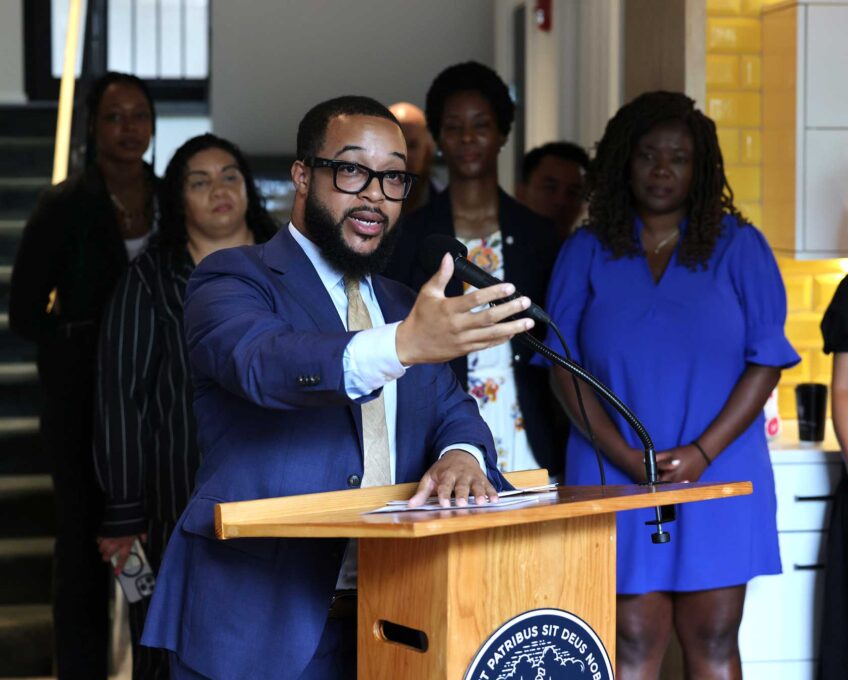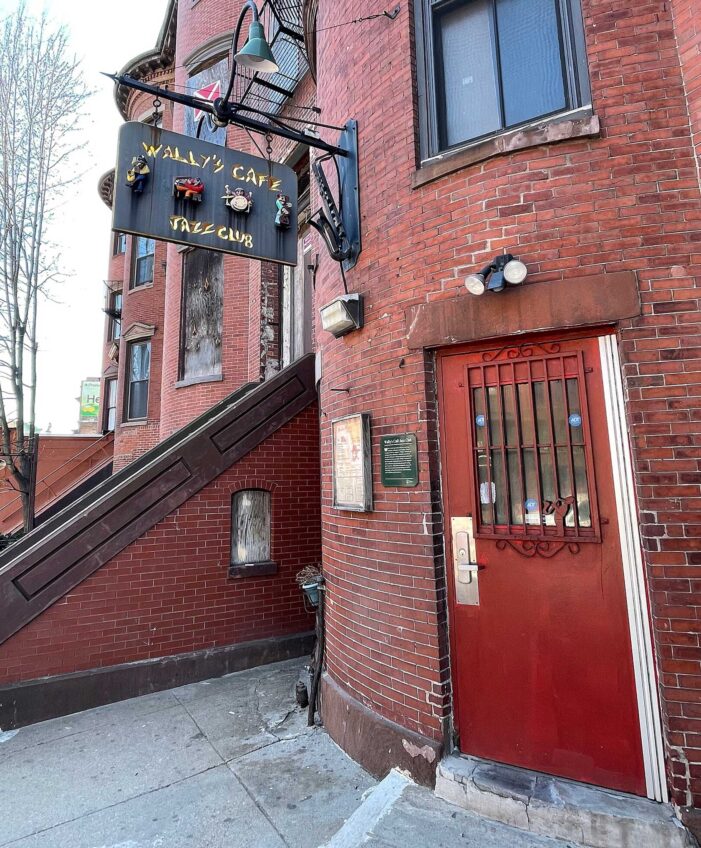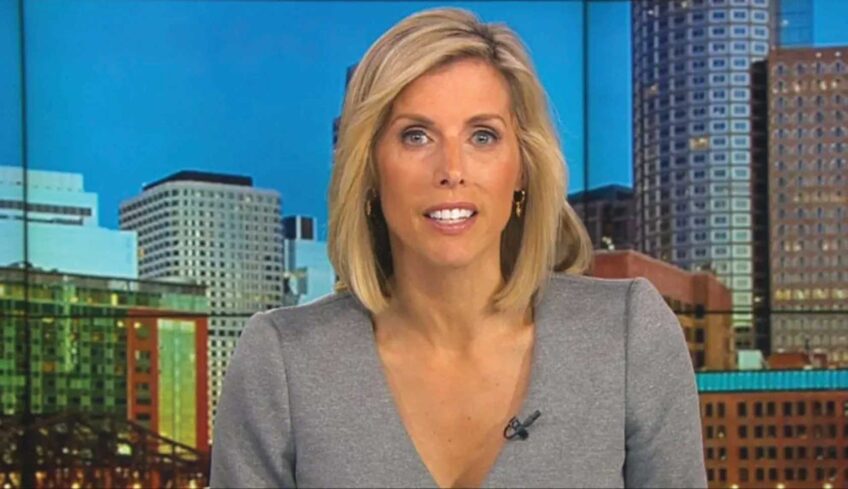The workout that didn’t work out
Legal Advice - Don't make business deals on paper napkins

Bob Bicep and Troy Triceps met one day at a local gym. Their schedules were similar, and they started to work out together. They compared notes on their different workout routines, including the foods, drinks and supplements that they consumed before and after exercising. They had fun arguments about which routines and consumables were most effective, and they decided to keep track and measure their results. They also reached out to their other workout friends to find out their exercise routines, diets, supplements and results.
Bob and Troy were obtaining great information for the best workout routines and consumables. But, they found that a recurring problem for them and their friends came when they traveled, which they did fairly often. In motels, friends’ homes or inexpensive alternative housing, there were few or no workout facilities, and food choices typically were limited. How could one maintain an effective workout routine under these circumstances?
That’s when Bob came up with the idea of developing a cellphone app for working out on the road. Users would enter into the app the specific workout equipment that was available where they were staying, the food offerings and the workout goals. The app would respond by telling users what workout routines to use and what foods to eat. When there were no workout facilities, the app would indicate how to take advantage of common room amenities to develop a full-body workout routine, and what to eat from a limited menu.
Bob and Troy needed someone who could write the code for the app, and a friend of Troy’s introduced them to Harry Hamstring. Harry was a software engineer who had been writing code for nearly 10 years and had developed several apps. They had lunch together and Harry immediately loved the idea and wanted in. Bob pulled out a paper napkin and wrote a simple deal. They would be equal partners in the new app, to be called Fit-Tel. Bob would continue to gather data and turn it over to Harry, Troy would provide some initial funding and seek out investors, and Harry would write the code. They each signed and dated the napkin.
Development went more slowly than they had anticipated. Troy put $5,000 into the deal to cover initial costs, and he started looking for some investors. Bob continued to bring data to Harry, but a couple months later, Bob’s wife had a baby and Bob couldn’t spend any more time on the project. In addition, Harry had a full-time job and he could work only on nights and weekends.
Troy picked up the slack of providing the data to Harry, and Harry continued to work on Fit-Tel. Finally, about a year after they signed the napkin, Harry completed it. He sent out a beta version to Bob and Troy. Troy thought it was perfect, but Bob could not be bothered to even look at it; he was swamped with work and parent responsibilities.
Troy showed Fit-Tel to Maggie Money, an angel investor and workout enthusiast, and Maggie loved it. She wanted to invest $1 million for a 55 percent interest in the app. The money would be used for final development of the app, copyright/trademark/patent protection, and marketing. Maggie also wanted Bob, Troy and Harry to agree to reduce their interests to 15 percent each, spend 50 percent of their time toward final development and marketing and sign non-competition, non-solicitation and confidentiality agreements.
Troy was excited with the deal! He brought it to Harry, but Harry thought that 15 percent was too small for all of the time that he had put into Fit-Tel. He also couldn’t spend 50 percent of his time on it going forward, and he didn’t think that Bob, who had deserted them, should get 15 percent. Lastly, Harry had already started working on another fitness app that he had conceived a couple months earlier, and he didn’t want to sign a non-compete agreement.
Troy then went to Bob, who said that he was not willing to accept less than 25 percent ownership for his initial idea that led to Fit-Tel and he did not think that the founders should give up majority control. He also said that there was no way that he could spend 50 percent of his time on its further development.
Troy decided to go see his friend, Linda Lawyer, to see if she could help. He knew that she worked with lots of startups. Linda explained to Harry that when people get together to develop a new product or service, they need more than just a napkin deal. They need a formal document that addresses job responsibilities during development, ownership division, cost sharing, dilution for investors, noncompetition, confidentiality and many other matters. It’s not an expensive agreement, but it takes care of issues that can develop later. While many of these matters may not seem important in the beginning stages of development, once the product or service is marketable, founders react differently to these issues, as was the case with Bob and Harry. Linda’s best advice to Troy was for him to try to negotiate a deal among Bob, Harry and Maggie, and she would write it up.
Troy went back to Bob, Harry and Maggie to find acceptable middle grounds on monetary investment, ownership interests and future work responsibilities. Unfortunately, he couldn’t get them to agree. Maggie pulled out, the concept never was developed, and Troy lost his money. But Troy learned a lesson. The next time he wants to work on a deal with a partner, he will start off with a formal written agreement that clearly states what will happen as they pursue and develop their concept. That way, it will have a far better chance of succeeding.
Jan Glassman is the founder of Daily General Counsel™, www.DailyGeneralCounsel.com, a Boston-based startup that provides very affordable legal services to small businesses and startups that otherwise could not afford a highly experienced business lawyer and would “go it alone.” DailyGC™ lawyers spend a full business day at their clients’ places of business, working directly with owners to resolve their most pressing sales, operations, employment and other legal/business problems. Prior to founding DailyGC™, Jan was General Counsel for a national management consulting firm that served small businesses throughout the United States. Follow Jan Glassman on Twitter @DailyGC






